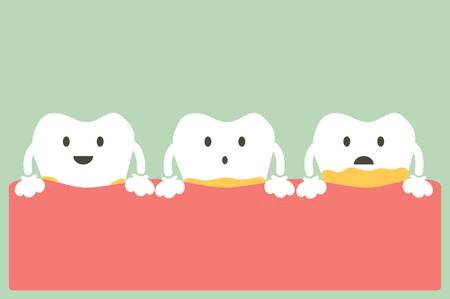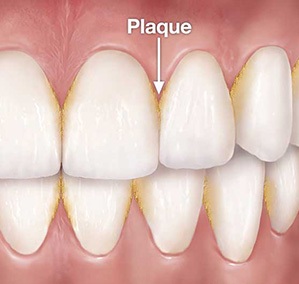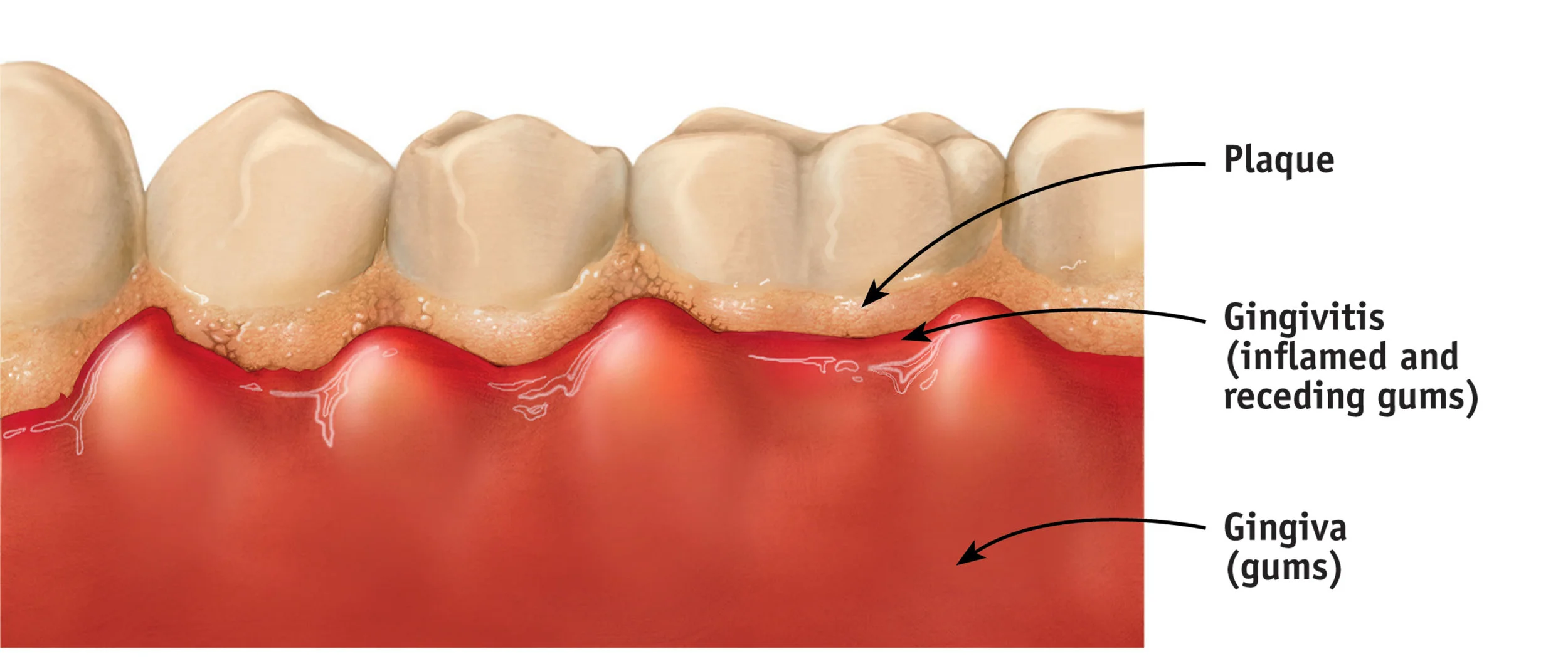Ask the Dentist: What is plaque? What is tartar? What's the difference?
Dental plaque? What is tartar? What’s the difference?
What’s the difference between dental plaque and tartar? What is the definition of plaque? What causes plaque? Is it related to gingivitis? A lot of people think they are the same thing, but there are very important differences that we’ll explain in this article that will help to distinguish the two and why regular daily oral hygiene and dental visits are so important to have good oral health.
Quick Summary of Dental Plaque
| Features of Dental Plaque |
|---|
| Plaque is a soft mixture of food, saliva and bacteria and can brushed off |
| Tartar is the hard version of plaque that is stuck to the tooth and can’t be brushed off |
| Both plaque and tartar contain bacteria the gums to bleed and swell up ) |
| Tartar can cause permanent damage to the gums and bones |
| You can use a toothbrush and floss to remove plaque but you can’t remove tartar without a dental clean at the dentist |
Definition of Plaque: What is dental plaque on teeth? What is plaque?
Dental Plaque
Plaque is the soft sticky residue that builds up on your teeth or gumlines or in between the teeth. It contains food particles and MILLIONS of bacteria. Every time you eat food, you’re not only feeding your stomach, but you’re also feeding the many different colonies of bacteria inside your mouth which can cause tooth decay or gum disease. Inside the mouth there are good bacteria and bad bacteria, but the bad bacteria thrive the most from foods which contain carbohydrates or sugars. After feeding on the sugar and carbohydrates, some of the bacteria produce acids which erode and eat away at our teeth causing tooth decay. This then leads on to the teeth requiring dental fillings.
How do I remove dental plaque from my teeth?
When we brush our teeth, we are wanting to brush and floss the plaque off the following areas:
the tooth
the gumline
the gaps between the teeth
Read our articles on Techniques on How to Brush or Tips on How to Floss.
I brush and floss and still get plaque? Why?
Sometimes it may to do with your diet and habits. Do you drink water after your meals? It’s actually a very helpful way to get rid of plaque and also stains. Anything that can stain and dirty a white ceramic plate will stain and dirty your teeth. When you do brush, do you actually brush into the gumlines properly and gently?? Do you floss into the gumlines properly and gently?
Excessive plaque? What happens when we don’t floss or brush the plaque off?
Plaque build up and gingivitis causes bleeding and swelling
Bad breath! Plaque is a mixture of bacteria, saliva and food. That food have been from this morning, yesterday, and in very bad cases several weeks or months ago! Leaving a sandwich in your bag for a few days already stinks. Why would you do that to your mouth! Read our article on Bad Breath
The plaque contains and attracts germs because its a source of food. This will then cause an inflammation process and bleeding gums called GINGIVITIS
Over the course of several weeks and even months, the plaque accumulates and builds up to form into a hard rocky substance called tartar. Read the next section to find out more about tartar
What is tartar?
Simply put, tartar (also known as dental calculus) is the hard version of plaque that is STUCK to the surfaces of the tooth and along the gumline. If plaque forms and is not properly brushed away or flossed away, it slowly calcifies and sticks itself to the gumline and tooth. I often describe plaque to be like soft mushy cement that is soft and can be cleaned off the teeth and gumline, but once it turns its tartar, its essentially a hard cement that’s stuck on the teeth and can only be removed by have a dental clean.
Continued plaque build up eventually leads to the formation of tartar which can cause gum disease and the permanent damage of the gums and bones surrounding a tooth
Why is it important to have dental cleans to remove tartar?
Please note, you can’t brush tartar off your teeth because its stuck to the teeth. Sometimes it’s been on your teeth for so long that when a little bit of tartar chips or break off from the tooth, you can even think that it was your tooth that chipped.
When you realise and see that you have tartar, its PARAMOUNT to book yourself in for a dental clean.
Like we’ve mentioned previously plaque and tartar ALWAYS contains and attracts bacteria because its food for the bad bacteria inside our mouths. The more tartar builds up, the more bacteria there is and the more likely the gums become infected, swollen, bleed. If the plaque and tartar aren’t cleaned off from the teeth and gumline, it will eventually cause gum disease. This means that the gums and bones erode and shrink down from the tooth and the damage to the gums and bones are permanent.
What we have discovered is that a lot of patients have tartar build up withing a few months, and that is why we recommend having regular dental check up and cleans every 6 months, so you don’t run the risk of any long term damage to your gums and teeth. That is why we provide No Gap Dental Check up and Cleans so that it is affordable and easy for our patients to visit the dentist for regular dental care.
Are you looking for modern and gentle dentist who will look after you and your family? Then welcome to Capstone Dental - we aim to be the best dental clinic in the Blacktown area and conveniently located in Seven Hills shopping centre. We are within minutes from Toongabbie Dentist, Prospect Dentist, Blacktown Dentist, Lalor Park Dentist, Baulkham Hills Dentist, Girraween Dentist, Kings Langley Dentist, Bella Vista Dentist.
NO GAP DENTAL ON CHECK UPS, CLEANS, FLUORIDE, X-RAYS, FISSURE SEALS, INTRAORAL PHOTOGRAPHS FOR ALL MAJOR HEALTH FUNDS
With the convenience of Hicaps, your private health fund claims can be made on-the-spot saving you time and effort in making manual claims later. Almost all major private health funds are accepted including BUPA, Medibank, HCF, NIB, HBF, AHM, CBHS, HIF, St Lukes, CUA and many more. Please call us on (02) 8605 1696 to find out if your private health fund can be claimed on-the-spot.




